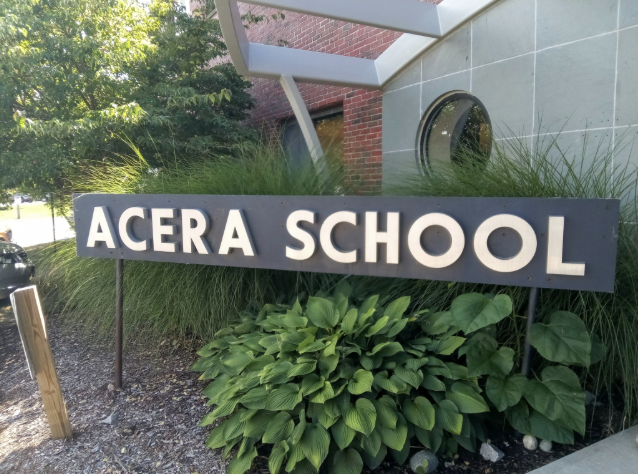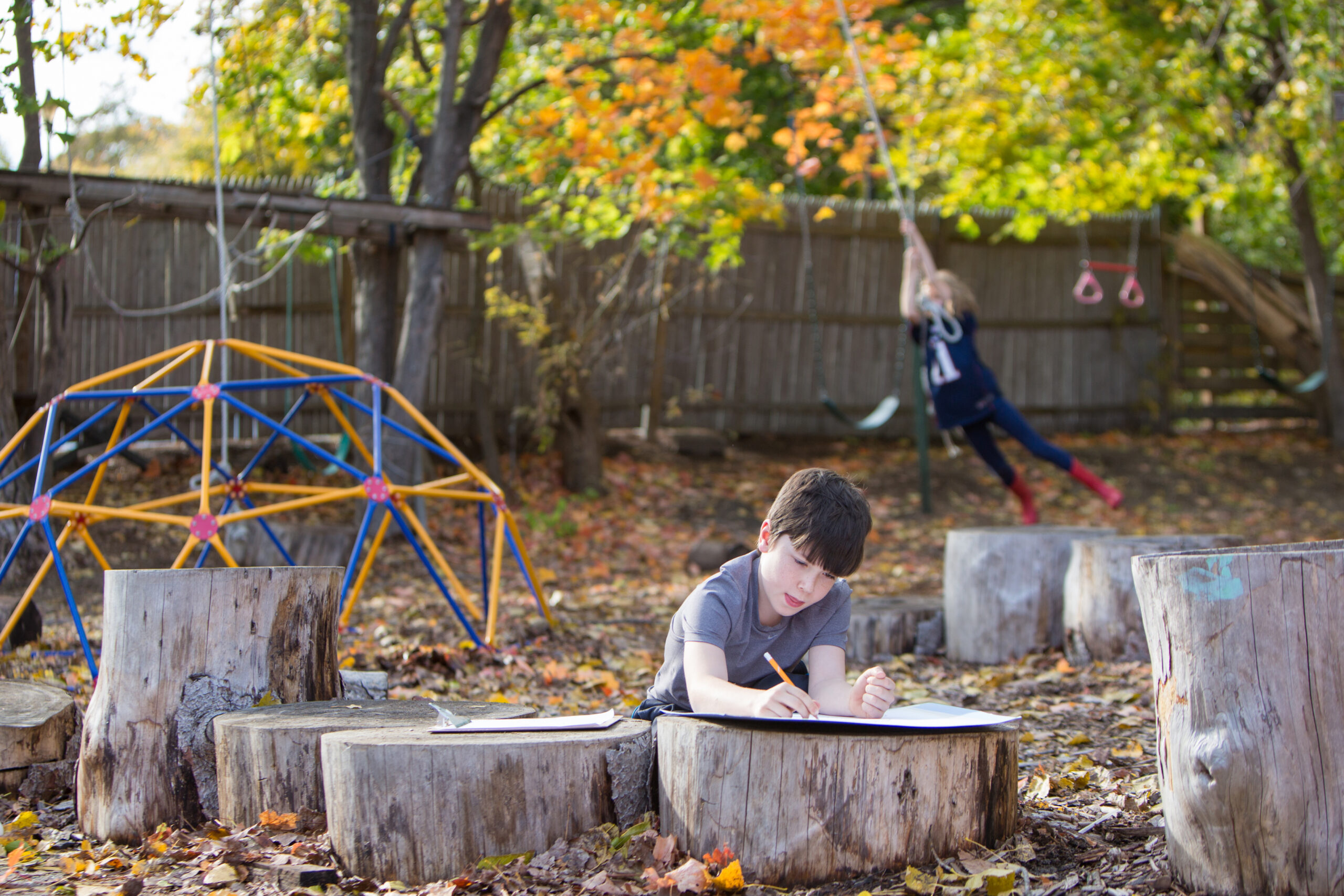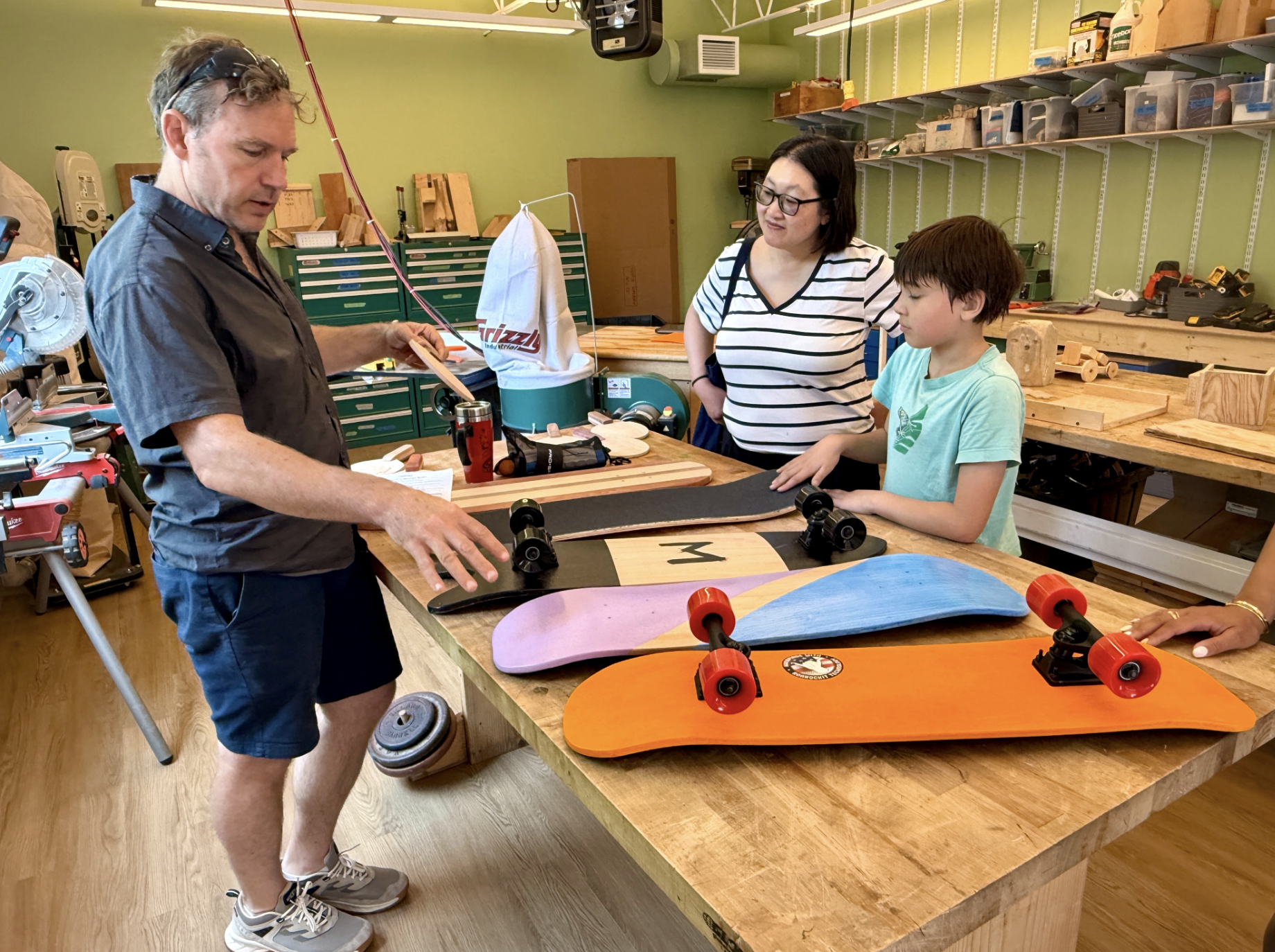May 2025--As we close out the school year, we do so with full hearts—filled with…
Acera’s 10-hour flip turn to remote learning

By Courtney Dickinson
At 10 pm Wednesday, March 11, Acera School’s board voted unanimously to move to a remote education model, effective immediately. With humility, I share steps and philosophies we employed for remote learning, hoping that this will be useful for other school communities.
1/ Set clear norms, rhythm, and habits for home-based schooling to follow a schedule that’s familiar to students, ideally on day 1 This sets a tone for students that school is continuing, not closing, and that their community is intact. Teachers publish a schedule for the day at the start of the day, with links embedded for hands-on activities, assignments, and directions on how to post work products on virtual sites designated for teachers to see and/or for classmates to all see together.
2/Consciously use remote communication tools in ways which make kids feel connected to other people. Examples include an elementary classroom morning meeting time with student participation, video-based class read-aloud and lecture times, and use of collaborative work and sharing sites where kids can post their work products and comment on each others’ projects. The intent is to stave off feelings of isolation.
3/Leverage technology: At Acera, we are leveraging the following technology platforms and following these tips to ensure smooth operation of equipment:
- Google Classroom: Used for communication, assignments, resources, collaboration, and other classroom community needs.
- Zoom/Google Meet/YouTube Studio: Used for both live streaming of video/audio/presentations (and to keep for later viewing).
- Google Docs: Used for completion of writing assignments, presentations, and other student work. It also allows for commenting and versioning.
- Technology at Home: Families should ensure that personal laptops are capable of supporting student needs remotely. If needed/possible, set aside school “open hours” to sign out laptops, Chromebooks, ipads, and chargers
4/ Share strategies with parents – especially parents of younger learners – on what TO do and what NOT to do. For example, in literacy learning, the best practice is to ask questions and coach, not for teachers (or parents) to “correct” kids work, which can be demoralizing and eradicate student motivation and confidence. This may not fit what adults’ experiences were when they were kids, but a tone of encouragement and the adult being in a role of “coach” to ask questions, and give suggestions fosters a growth mindset. This approach enables kids’ habits of trying and improving, and their expectation that they will keep getting better. This is distinct from “getting it wrong” or “not have a good piece of writing.” This is especially true in learning to write and learning to read. Additionally, Carol Dweck advises us to support a growth mindset with the use of the word “yet” https://www.youtube.com/watch?v=ZyAde4nIIm8
5/ Empower teachers and students to make decisions. Let teachers choose the right balance of lecture, assignments, posting responses back, creative projects to fit their classroom learning goals, kids learning styles, and interests. De-emphasize “grades” as we all learn a new mode of learning. The key is not “giving assignments and turning them in” but, more creatively, engaging kids in projects which will immerse them in a meaningful way. Give kids choices. For example, after they read a piece shared by their teacher, invite them to choose to respond by essay, blog, podcast, video, or an original game they made to teach the ideas in the article. There are a plethora of ways to process information and show that a student “got” it. A benefit in remote schooling is that there is more time to dive deeply into high engagement work without the schedule limitations. So, if a student gets fired up to make a mini movie or a meme commentary about the reading of the day, they can have the time to dive deeply. Acera’s teachers are employing “choice boards” in our newly emerging remote school model.
I am filled with gratitude over the care teachers are taking to catalyze a new way for learning and community to happen amid a dramatic and sudden change. I have deep respect for the integrity and creativity teachers manifest as they approach their role and their students in a way unique to students’ needs, while also imbuing a spirit of community and of Acera!



